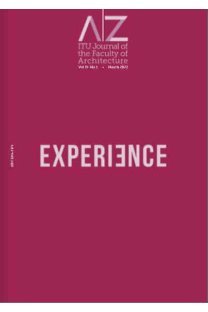Spatial planning of stadiums according to international regulations in Turkey
Spatial planning of stadiums according to international regulations in Turkey
___
- Aksu A. (2011). Spor Sosyal Ortamı Olarak Stadyumlar, Mimarlık, 48(360), 44-49.
- Arkiv Projects Konya Büyükşehir Stadyumu (http://www.arkiv.com.tr/ proje/konya-sehir-stadyumu/2990) interpreted by Author
- Arkiv Projects Mersin Stadyumu (http://www.arkiv.com.tr/proje/mersin-stadyumu/2069) interpreted by Author
- Arkiv Projects Kayseri Kadir Has Şehir Stadyumu (http://www.arkiv. com.tr/proje/kadir-has-sehir-stadyumu/2998) interpreted by Author
- Arkiv Projects Türk Telekom Arena (http://www.arkiv.com.tr/proje/ turk-telekom-arena1/742) interpreted by Author
- DelMont R., Botta C. & Reddy R. (2011). FIFA Football Stadiums Technical Recommendations and Requirements, Zurich: The Fédération Internationale de Football Association
- Fenwick M., Borno T., Favre T. & Tusell J. (2011). UEFA Guide to Quality Stadiums, Nyon: Union of European Football Associations
- Gürel E. & Akkoç U. (2011). Stadyum: Benzerlikler, Koşutluklar ve İzdüşümler, Uluslararası Sosyal Araştırmalar, 4(19),
- Hasol D. (2008). Mimarlık Sözlüğü, İstanbul: YEM Kitapevi
- John G., Sheard R. & Vickery B. (2007). Stadia: A Design and Development Guide, Elsevier: Architectural Press, Oxford.
- Kellison T. B., Trendafilova S. & McCullough B. P. (2015). Considering The Social Impact Of Sustainable Stadium Design, International Journal of Event Management Research, 10(1), 63-83
- Nixdorf S.(2008). Stadium Atlas: Technical Recommendations for Grandstands in Modern Stadia, Berlin: Wiley VCH
- Paramio J. L., Buraimo B. & Campos C. (2008). From modern to postmodern: The Development of Football Stadia in Europe, Sport In Society, 11 (5), 517-534
- Platini M. & Infantino G. (2010). UEFA Stadium Infrastructure Regulations, Nyon: Union of European Football Associations
- Saltuk S. (1995). Antik Stadyumlar, İstanbul: İnkılap Kitapevi Wakefield K.L. & Sloan H. J. (1995).
- The Effects of Team Loyalty and Selected Stadium Factors on Spectator Attendance, Journal of Sport Management, 9, 153-17
- ISSN: 2564-7474
- Yayın Aralığı: Yılda 3 Sayı
- Başlangıç: 2005
- Yayıncı: İTÜ Rektörlüğü
Measuring place satisfaction by university campus open space attributes
Doruk Görkem ÖZKAN, Seda ÖZLÜ, Sinem Dedeoğlu ÖZKAN
Implementation of government policies in the construction industry: The case of Sri Lanka
A. P. K. D. MENDIS, D. A. S. R. JAYATUNGE, Vijitha DISARATNA, B. A. K. S. PERERA
An enabling technique for describing experiences in architectural environments
Luis Alfonso DE LA FUENTE SUÁREZ
Evaluation of the location choice of software industry in Istanbul based on the types of economy
Questioning a grid-planned settlement structure at ancient Larisa (Buruncuk)
A field study on thermal comfort in the shopping malls in a temperate humid climate
Fatma Zoroğlu ÇAĞLAR, Gülay Zorer GEDIK
Diler ÇİFTÇİ, Meltem Erdem KAYA
Deconstructing “original-copy” in architectural manifestos from 20th century to present
